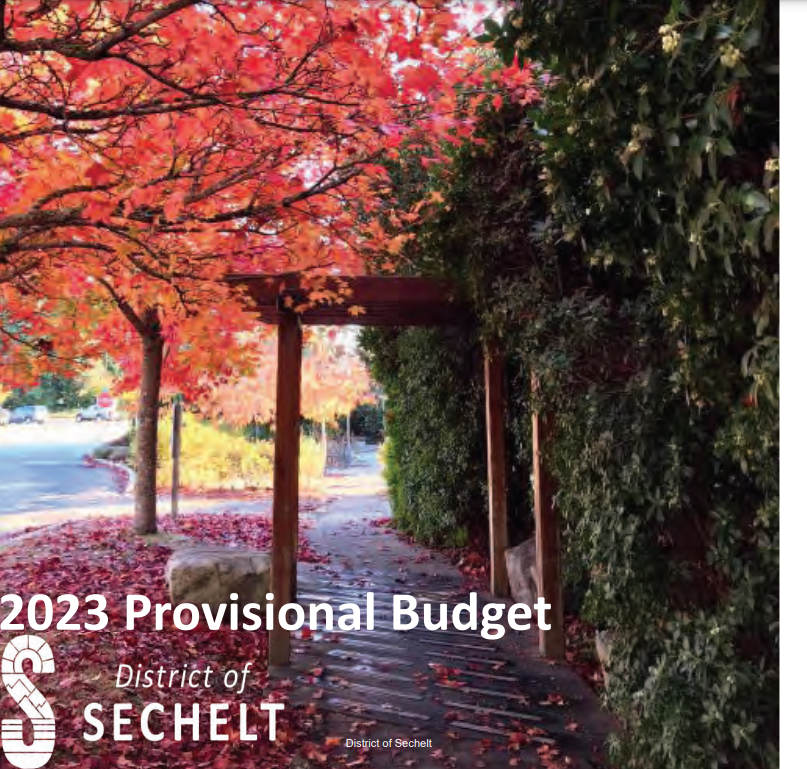While version two of Sechelt’s 2023 provisional budget appeared on its Dec. 19 committee of the whole meeting agenda, council members did not start discussion of the coming year’s proposed spending plan.
Director of financial services David Douglas stated that an update to version three of the 2023 provisional budget was due to be circulated and posted online by early January in advance of budget debate at committee meetings set for Jan. 4 and 11. Plans are tentatively in place for two public information sessions about the budget in the afternoon and evening of Jan. 10. Further agendas and details about these meetings will be available under the budget tab on sechelt.ca.
2023 cost increases
According to the draft of the coming year’s spending plan, to fund existing district operations and meet anticipated cost increases, the 2023 budget would require almost $785,000 more in property tax revenue than in 2022. The two expense areas requiring the largest infusions of cash are for RCMP services and covering contractual pay increases for district staff.
Not included in that total are requests for just over $2.1 million in new operating initiatives. Those items will require council approval to be added in.
As property assessment roll values for the coming year are yet to be determined, no tax rate adjustment estimate was provided in the document.
Sechelt’s property taxation level increased in each of the past two years. In 2021, rates went up by 9.7 per cent and in 2022, the increase was 8.08 per cent. In both cases, 3 per cent of the increase was levied specifically for the district’s capital renewal program, with the remainder funding general operations.
A fee increase that has already been approved for the coming year is for garbage collection, which will go up by $27 to a rate of $270 annually.
Meeting discussions
Douglas stated the intent of the Dec. 19 meeting was “to give council an education session on some of the regulations, acts, bylaws and policies in place” that affect how the district develops its financial plans. Noting that three members of council are serving their first terms, he said it was important to ensure all are aware of “where council plays a role in the finance area and where they don’t."
The fine points of budget and taxation collection timelines, audit requirements and district policies were reviewed at the meeting. An item identified by Douglas to the group as in need of updating was the Development Cost Charges (DCC) bylaw. This document sets the contribution rates paid to the district by land developers for drainage, parks, road and if the land involved is within specified areas, sewer. It also details the capital projects that the district can spend DCC funds on. The current version was developed in 2016. It was noted that some of the projects listed have been completed, new ones need to be added and project costs require updating due to inflationary cost escalations.
Douglas said this update “is not a cheap venture." The work is proposed in the draft 2023 budget as a new operating request, at a cost of $300,000. In response to Coun. Adam Shepherd's inquiry about that cost level, Douglas explained the detail required in project costing and that the bylaw must meet ministry review and approval.
The municipality’s separation of funds, for general operations and for its sewer function, and how those are shown in financial documents was a focus of Douglas’ presentation at the meeting. The key message emphasized was that funds from general taxation are not used for sewer services and fees collected for sewer are spent only for those operations.
It was highlighted that this is the first year “asset report cards” for the district’s transportation network, stormwater system as well as its wastewater collection and treatment infrastructure are included in the provisional budget. These provide an inventory summary and the historical costs associated with each of those classes of assets along with a “general condition assessment” for each of the categories.



